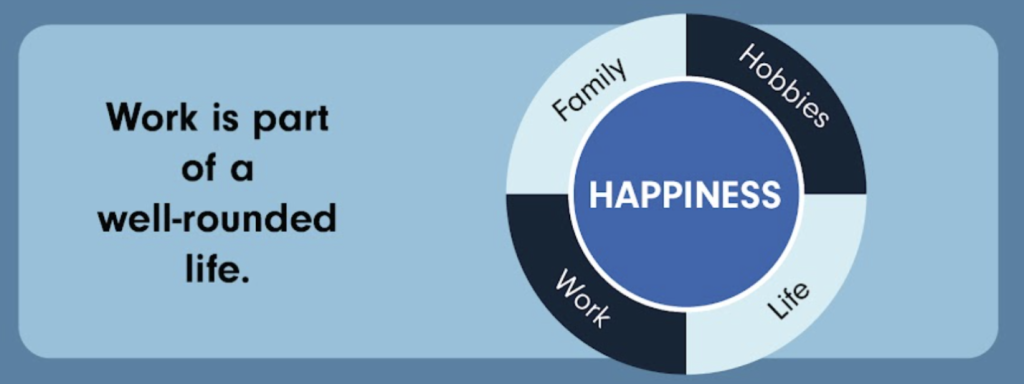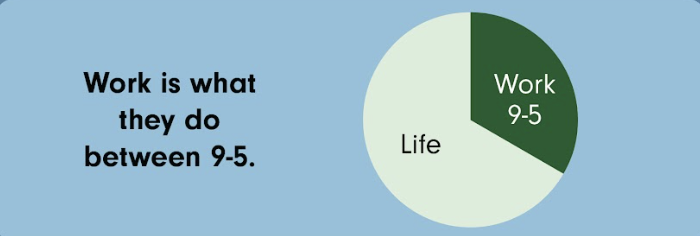When managing — and, frankly, just working with — other generations, a common area of misalignment is assuming people in other generations view work the way you do. And while yes, yes, and of course, everyone is a unique individual, there are different generational tendencies to see work and where it fits in their lives.
Here’s a quick and high-level look at where work sits in each generation’s lives.
Where does work sit in Boomers’ lives?
Work, purpose, mission and personal identity are all intertwined in Boomers’ lives. To feel satisfied at work, they need to be able to express their values in their jobs.
Job happiness to many Boomers means total commitment and buy-in to the mission and values of the organization.
They often see their careers as a calling, and they see their work as an integral part of a unified, authentic lifestyle. As such, many view retirement almost as a sin.
They are the classic “all work, no play” workaholics.
They also can tend to be loners and a bit isolated at work.

Where does work sit in Xers’ lives?
Xers–unlike Boomers–do not define themselves by their work and are generally more interested in providing the least input (time, effort, resources) for the highest output (pay, bonus, time off).
They are a highly productive generation in the workplace and national productivity rose significantly when young Xers joined the workforce.
Xers
- Prioritize (insist on) having a life… and a fun life, at that;
- Advocate for flexible work environments;
- Compartmentalize their lives well; and
- Have an “It’s a job, not my life” attitude about work.
For Xers, having a LIFE is key. Work is a bucket, one of several large and important buckets in their lives, but not a central theme nor a core identifier for them the way it is for Boomers. Nor do Xers expect their employers to look out for them and have their backs.
Xers tend not to get overly focused on friendships at work the way many Millennials do. Xers have friends in their life outside of work, which is where they’d rather be spending more of their time anyway. They can be team oriented toward targets and goals, results and the bottom-line, but they aren’t team oriented for the same of team engagement and participation.

Where does work sit in Millennials’ lives?
While Xers have transformed the work-work-work environment Boomers created with an insistence on “having a life,” many Millennials, on the other hand,
- Want a conventional, well-rounded life;
- Refuse to see “work” and “life” as separate and mutually hostile priorities;
- Are interested in more of a work-life blend, in which work and life intermingle throughout the day;
- Often see and treat company workspace–lounge areas, coffee bars, living-room-like offices–as their own personal living space, which can gall older generations; and
- Want to trust their employers and want their employers to commit to them as whole people and to trust them to balance (or blend) their personal lives with effective work habits.
Millennials tend to be inclusive and want collegial relationships with people at work. They prefer constant collaboration, and bosses and colleagues who are also looking to connect informally and develop real friendships with their coworkers.

Where does work sit in The Other Ones’ lives?
While those of us in today’s hectic lifestyle and current work environment may think work-life balance is a challenge throughout the ages, it really isn’t.
- Work-life balance likely won’t be an issue for this generation because they will be young adults when Millennials will be in midlife and Millennials will set the tone and work culture.
- They are likely to be ultimate time-clock punchers and “Organization Men”people” who happily dedicate their careers to life-long employers.

So, next time you find yourself judging someone from another generation as not being like you, you would do well to remember, yeah, they’re not like you. And just as you want consideration and respect for your values, so do others for theirs. 🙂
Leave A Comment